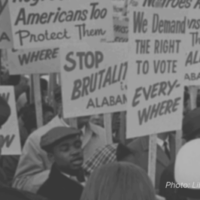What can state advocates, state-level labor agencies and state legislatures do to preserve and advance labor protections for workers in the face of the anti-worker actions being handed down from the second Trump administration?
. . . .
Labor advocates, national progressive think tanks and economic policy experts say that all hope is not lost when it comes to labor power at the state level. A November 2024 policy brief from the NYU Wagner Labor Initiative, National Employment Law Project, and other academic and nonprofit groups, sheds light on the ways that states can protect labor rights in 2025.
Paul Sonn, state policy director at the National Employment Law Project, told Truthout that states don’t need to wait for the Trump administration to reverse key Biden administration protections before they advance administrative or legislative protections to fill the gaps. Some of them have already been blocked in the courts by the judges Trump appointed in his first term.
“It’s not a question of whether the Trump administration will abandon any of these rules,” said Sonn. “The Trump judges are already blocking many of them. It’s urgent that many of the states act now to protect their residents from these rollbacks — and these are politically popular: very basic worker protections like the right to stronger overtime pay protections, the right to not be subject to abusive noncompete clauses that lock you in a job where you’re being harassed or prevent you from quitting to take a better job.”
Sonn said many of these are actions governors can take through their labor agencies; for example, Arizona Gov. Katie Hobbs could adopt a heat standard for workers if the federal heat rule is blocked, and Michigan Gov. Gretchen Whitmer could expand overtime pay protections in her state.
. . . .
Read the full article at Truthout.



